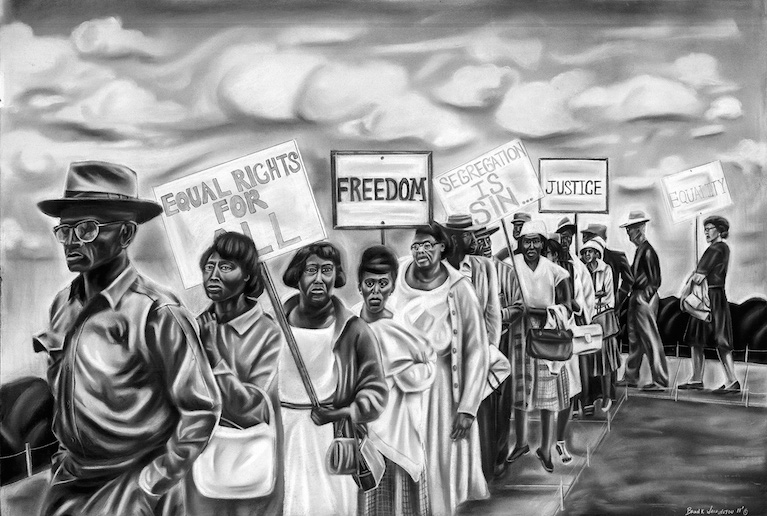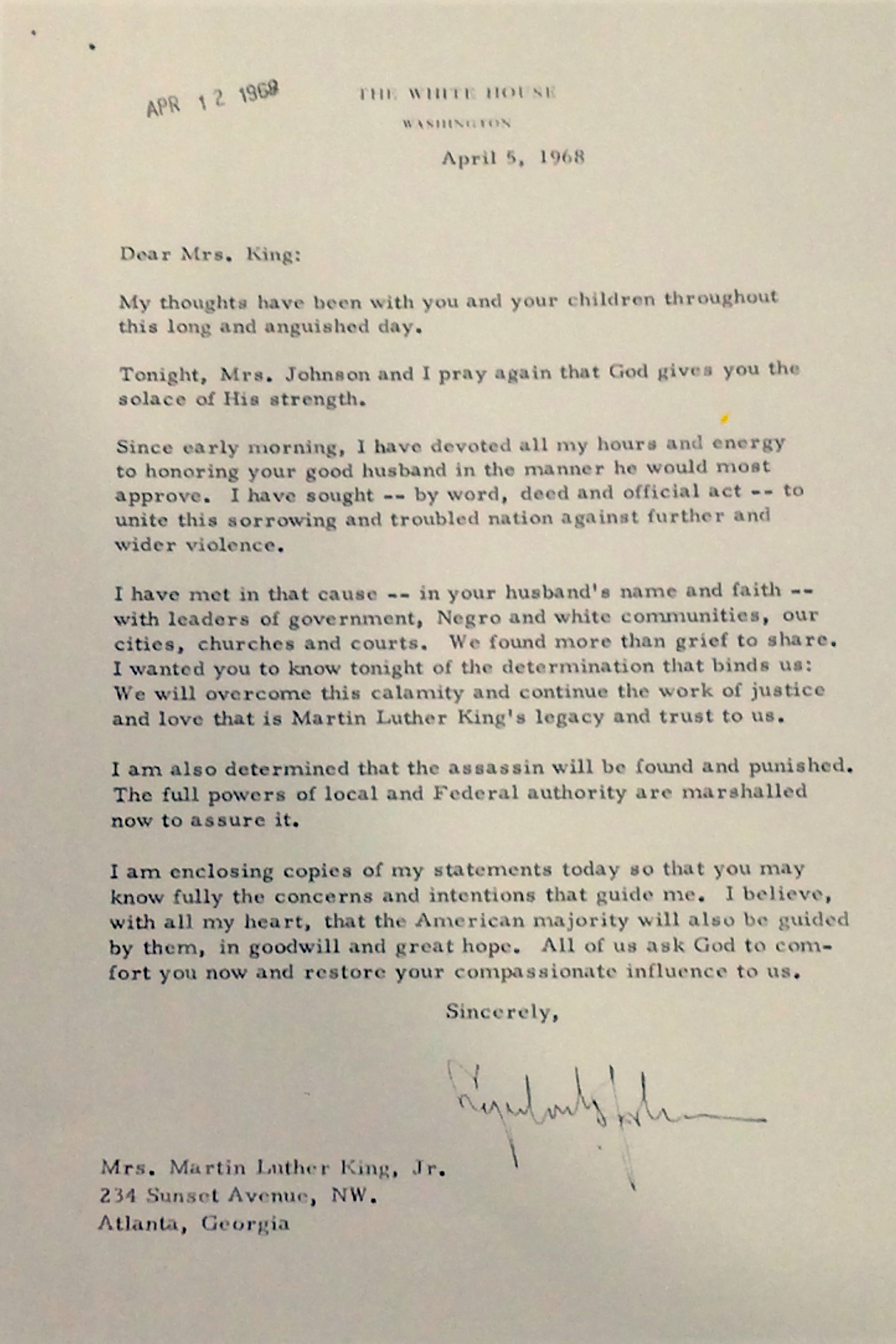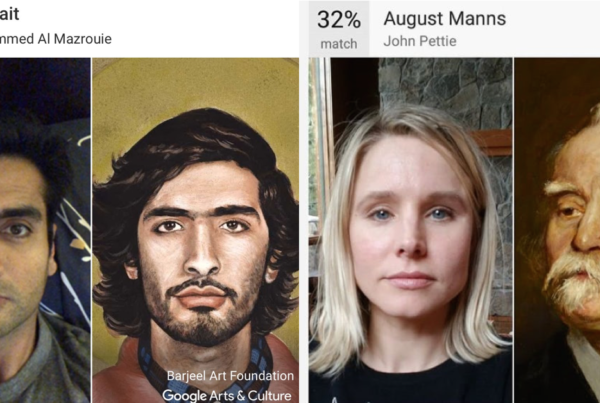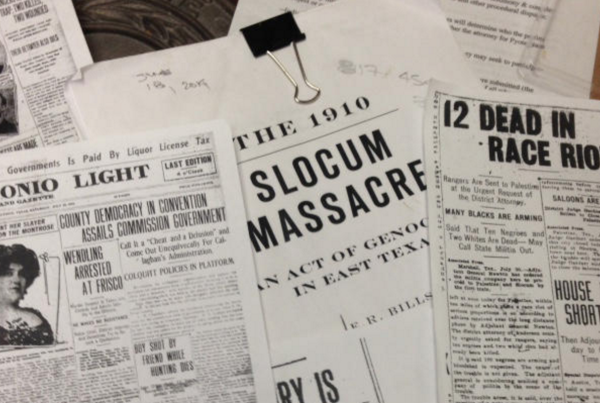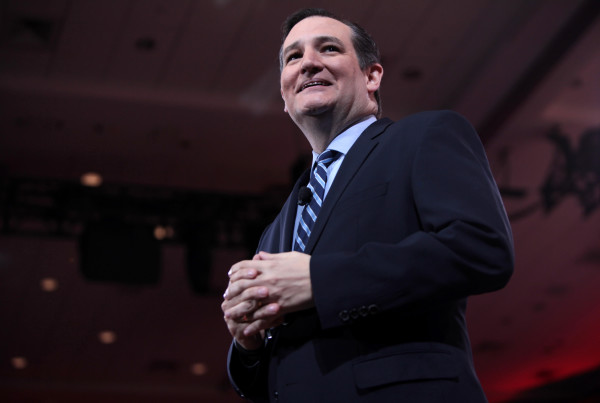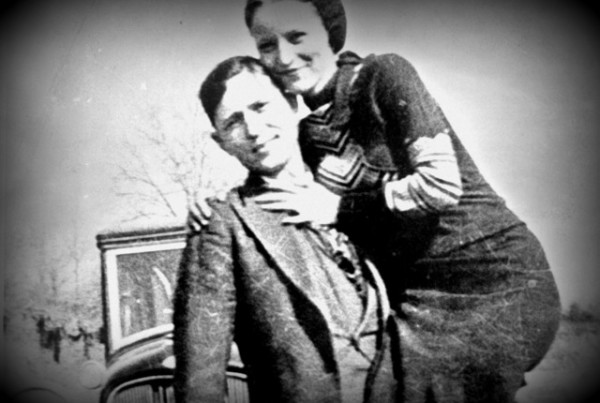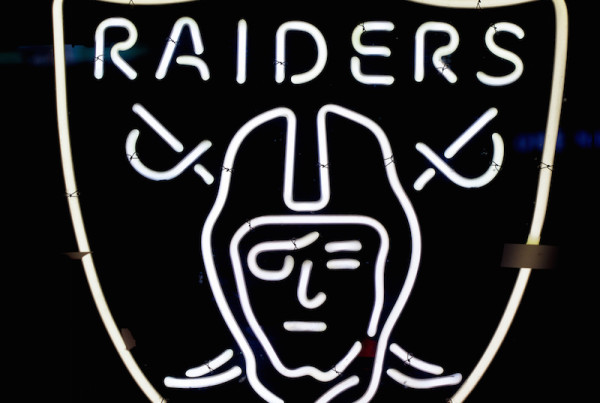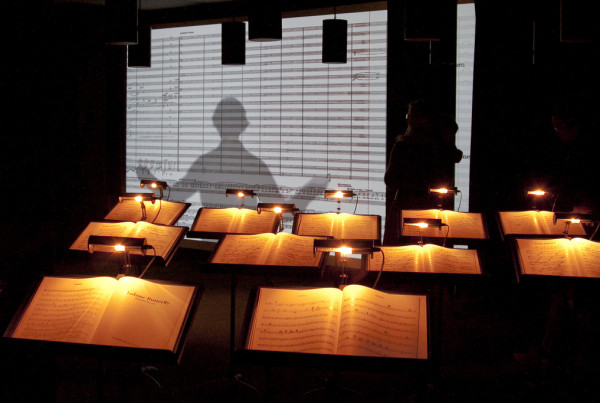If you live in one of this state’s major cities, it’s likely there are celebrations or parades today. Students who are off may be giving their time in service to their communities, all to honor to the life and achievements of one of America’s most influential civil rights leaders, Dr. Martin Luther King, Jr.
One of Martin Luther King’s greatest partners in the fight for civil rights was a white Texan endowed with both privilege and power – Lyndon Baines Johnson, then President of the United States. Today, the LBJ Presidential Library is showing off, for the first time, a condolence letter from President Johnson to King’s wife, Coretta Scott King, following her husband’s assassination.
Mark Updegrove, who directs the LBJ Library and Museum in Austin, wrote that the partnership between LBJ and MLK on civil rights is “one of the most productive and consequential in American history.” He says their work together on passing the Civil Rights Act in 1964 and voting rights legislation the following year were pivotal in transforming Jim Crow laws that pervaded the South.
“The Voting Rights Act, I think, is the most transformative of all civil rights legislation because it gives everybody the power of the ballot,” Updegrove says. “I think that that would trouble President Johnson and Dr. King deeply to see that voting rights is once again under siege after fighting so hard to ensure that everybody access to the ballot box in 1965.”
Coretta Scott King gave the letter from President Johnson to a family friend Harry Belafonte, the singer known both for hits like “Day-O” and for his civil rights work. After her death, Belafonte tried to auction the letter for charity, but the King children blocked him from doing so.
“Later, Belafonte gave it to his sister, who in turn tried to auction it off,” he says. “There was no legal action against her. An anonymous donor bought the letter and donated it to the LBJ Library.”
Johnson wrote the letter on April 5, 1968, the day after King’s assassination, saying, “I wanted you to know tonight of the determination that binds us. We will overcome this calamity and continue the work of justice and love that is Martin Luther King’s legacy and trust to us.”
Updegrove says Johnson chose his words carefully for this letter to Coretta Scott King.
“There’s a pointed use of that word ‘overcome’ because ‘We Shall Overcome’ was really the anthem of the civil rights movement,” he says. “So much of what both Dr. King and President Johnson did was to overcome the bigotry that pervaded this nation for so long.”
Updegrove says the letter captures the anguish of the country in the aftermath of King’s assassination. “It was a long and anguished day for all Americans,” he says.
The holiday honoring King acknowledges the work he did to bring the country together, Updegrove says.
“This is a holiday for all Americans,” Updegrove says. “He allowed us to fulfill our promise as a nation. We are better for the civil rights movement of the 1960s – it advanced us as a society [and] it allowed us to reach our potential.”
The exhibit at the LBJ Library featuring the letter to Coretta Scott King will be on display spoken through April 10.


